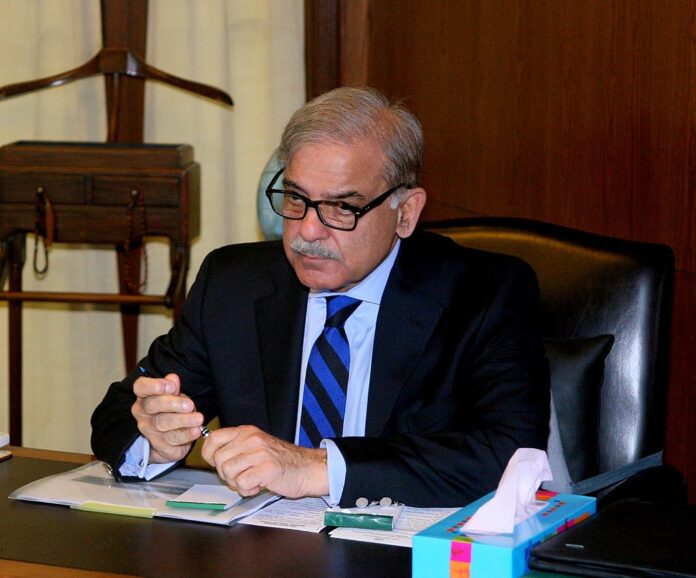During his five-day visit to New York, PM Sharif aims to strengthen international ties and address pressing global issues at the United Nations General Assembly.
Prime Minister Shehbaz Sharif gears up for an important visit to the United Nations General Assembly (UNGA) in New York, commencing with a stopover in London. As he navigates final adjustments to his schedule, his meetings with various world leaders take centre stage. Notably, he plans to meet newly elected British Prime Minister Keir Starmer on September 25, marking a significant opportunity for diplomatic engagement between the two nations.
Upon arriving in New York, Sharif will also engage with the Kuwaiti Crown Prince at the Kuwaiti Mission to the UN. His schedule is packed with crucial meetings, including a discussion with the Turkish President on September 24 and an engagement with the European Union President. Sharif aims to focus on bilateral relations with regional countries, having set up meetings with leaders from Bangladesh, Nepal, Iran, the Maldives, and others. However, a meeting with Indian Prime Minister Narendra Modi remains unlikely amidst ongoing geopolitical tensions.
Embed from Getty ImagesWhile Modi has been involved in secret negotiations under the Quad alliance—comprising India, the US, Australia, and Japan—Sharif’s agenda centres on regional cooperation and humanitarian issues. Modi recently addressed the UN’s “Summit for the Future” and has been making efforts to ensure his engagements in New York remain unaffected by protests from political opposition groups.
Sharif’s five-day visit primarily revolves around the 79th session of the UNGA. He will be accompanied by key members of his cabinet, including Defence Minister Khawaja Muhammad Asif and Information Minister Attaullah Tarar, among others. The Prime Minister plans to address several high-level meetings during the session, including those focused on the existential threats posed by sea-level rise and the UN Security Council’s Open Debate on “Leadership for Peace.”
Engaging with the US-Pakistan Business Council and Pakistani bankers will form another critical part of Sharif’s itinerary as he aims to highlight his government’s pro-business policies. He will also hold discussions with UN Secretary-General Antonio Guterres, European Commission President Ursula von der Leyen, World Bank President Ajay Banga, and IMF Managing Director Kristalina Georgieva.
In a scheduled meeting with Palestinian President Mehmood Abbas, Sharif seeks to galvanize international efforts to alleviate the oppression faced by Palestinians. His visit will also include attending receptions to celebrate significant anniversaries for Brunei and Bangladesh’s UN membership.
Sharif intends to use this platform to address pressing global challenges, including the impacts of climate change, Pakistan’s sacrifices in combating terrorism, the debt burdens faced by developing nations, and the ongoing humanitarian crises in Jammu and Kashmir and Palestine.
Amidst these diplomatic efforts, Sharif has also expressed his appreciation for the Kingdom of Saudi Arabia on its 94th National Day, acknowledging the historical ties and mutual support shared between the two countries. Furthermore, he recently thanked Chinese President Xi Jinping for birthday wishes, reinforcing the close relationship between Pakistan and China, especially concerning the China-Pakistan Economic Corridor (CPEC).
Analysis
Political Perspective
Sharif’s visit to the UNGA signifies Pakistan’s commitment to re-engaging with the global community amid shifting political landscapes. By meeting with leaders like Starmer and engaging in discussions about regional cooperation, Sharif aims to reaffirm Pakistan’s diplomatic presence and navigate complex international dynamics, particularly regarding its relationships with India and the broader geopolitical implications of the Russia-Ukraine war.
Social Perspective
Sharif’s discussions will likely reflect societal concerns about humanitarian issues, particularly regarding the plight of Palestinians and the effects of climate change. His meetings highlight a growing global awareness of the interconnectedness of humanitarian crises and the need for collaborative solutions. This focus could resonate with civil society organizations and advocates for human rights, fostering public discourse on these urgent issues.
Racial Perspective
The geopolitical landscape often reflects underlying racial and ethnic dynamics. Sharif’s discussions regarding Palestine may bring attention to the struggles of marginalized groups, emphasizing the need for solidarity across nations facing similar challenges. Such dialogues contribute to broader conversations about justice, representation, and the fight against systemic oppression globally.
Gender Perspective
Gender issues often receive less attention in the context of international diplomacy, yet they remain critical in discussions about humanitarian crises and conflict. Sharif’s engagement with global leaders could open pathways for highlighting the specific impacts of war on women and children, advocating for inclusive policies that address these disparities in times of conflict.
Economic Perspective
Sharif’s focus on engaging with business leaders and international financial institutions underscores the economic challenges facing Pakistan and many developing nations. As he promotes pro-business policies, his discussions may also address the need for financial support and investment in sustainable development. The potential for economic partnerships formed during this visit could play a crucial role in revitalizing Pakistan’s economy and addressing pressing issues related to debt and development.
